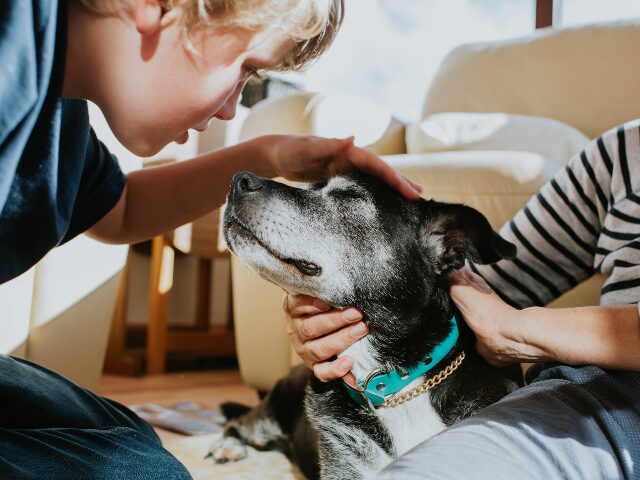The U.S. Food and Drug Administration (FDA) may soon green-light a drug that could help large-breed dogs live longer.
San Francisco-based biotech company Loyal made the announcement recently, Fox News reported Sunday.
Loyal founder and CEO Celine Halioua said, “There are 25 million large-breed dogs in the U.S. alone — that’s 25 million dogs we can help live longer and with better quality of life.”
According to Loyal’s website, its purpose is “Giving our best friends more time.”
“We’re developing drugs intended to help dogs live longer, healthier lives. By targeting the underlying causes of canine aging, we hope to prevent and delay the onset of many age-related diseases,” the site reads.
The drug, identified as LOY-001, may work to slow the aging process for larger dogs weighing 40 pounds or more, the Fox article continued:
The medication works by interacting with a hormone called IGF-1 that accelerates the aging process. It is designed to prevent age-related canine diseases — rather than waiting until symptoms appear, according to a spokesperson for Loyal.
…
Last week, the drugmaker announced that LOY-001 has cleared early hurdles with the FDA, which signaled that the data so far shows the drug’s potential effectiveness.
However, it cannot be approved until other milestones, such as completion of a clinical trial and review of safety and manufacturing data, are reached.
According to NBC News, the drug would be administered through a shot every three to six months.
However, “Other researchers are hot on the trail to sniff out their own version,” the outlet stated:
While some dog owners are on board with the possible drug, one man who spoke with Fox 5 New York did not seem to feel the same way.
“My dog lived until 17, and I wouldn’t have given that medicine to my dog because my dog had lived a full life,” he said:
Veterinarians told Fox dogs can live ten to 13 years, but larger breeds age faster than smaller canines.

COMMENTS
Please let us know if you're having issues with commenting.